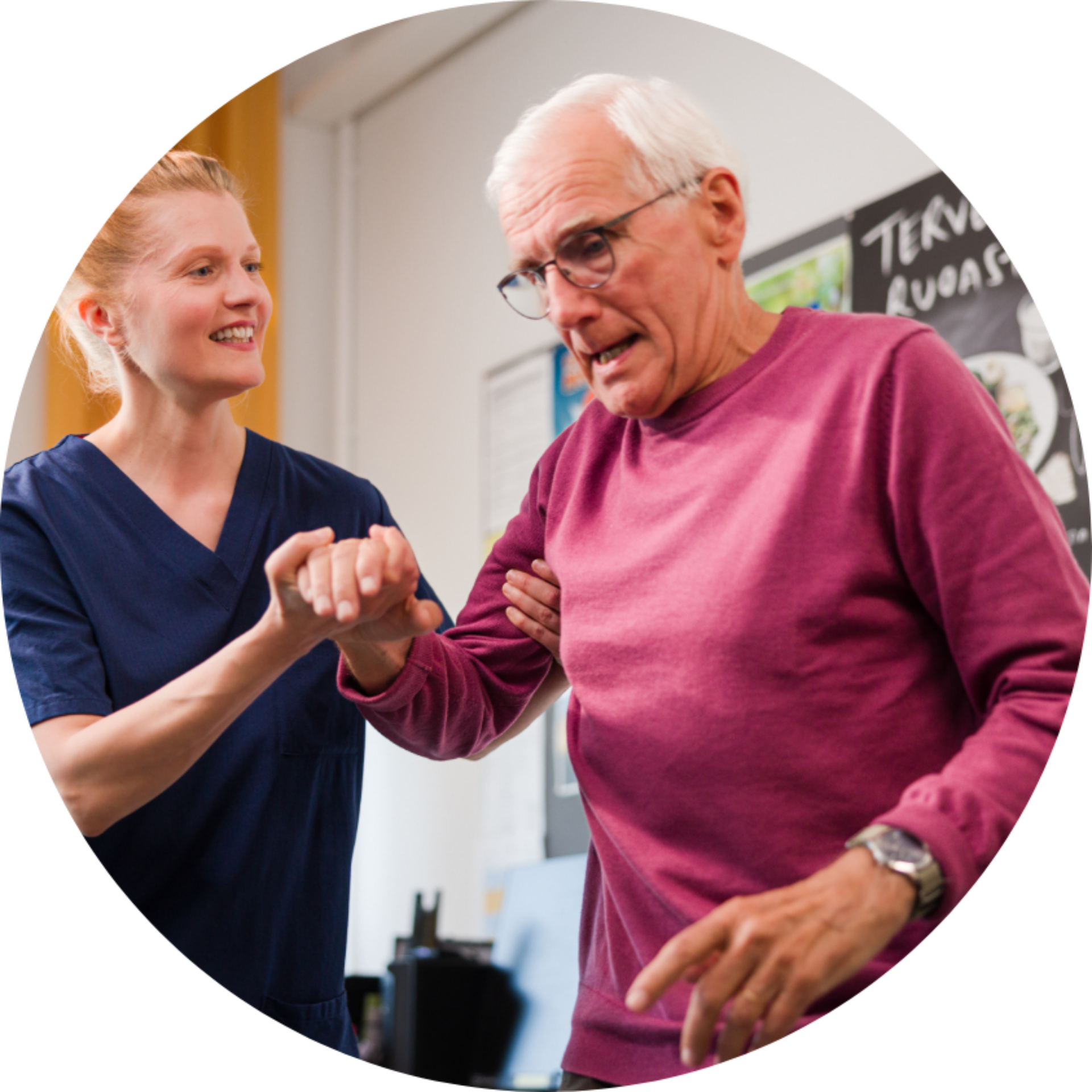
Elderly cancer patients benefit from a comprehensive geriatric oncology assessment to support treatment decisions
Geriatric oncology assessment refers to a comprehensive assessment of the health and functional capacity of patients over 75 years of age referred for consideration of cancer pharmacotherapy. The assessment is used when making treatment decisions and selecting the most suitable form of treatment for the patient. Geriatric oncology has been found to be useful and it has become an established part of normal treatment practices at the Tays Cancer Center.
The assessment is carried out in multiprofessional cooperation between a nurse, geriatrician and oncologist. The aim is to map patients’ ability to tolerate cancer drug treatments so that treatment methods can be chosen appropriately and taking into account their functional capacity. This minimizes the risk of complications, optimizes recovery and ensures that the patient’s quality of life is maintained. At the same time, the aim is to identify fragile patients for whom it is not meaningful or safe to start cancer drug treatment.
During the screening phase, the nurse reviews the cancer drug referrals of patients over 75 years of age in accordance with the doctor’s instructions. The nurse communicates with patients by phone using the G8 screener to help with the assessment. The screening charts the patient’s functional capacity and resources, such as the risk of malnutrition, mobility, memory disorders and depression, body mass index and weight loss, age, medication and personal assessment of health. High-risk patients with abnormal screening results are invited to an appointment for a more extensive geriatric evaluation.
Extensive geriatric mapping is performed on patients at risk
An extensive geriatric assessment is carried out as a joint appointment between a geriatrician and a nurse, where the patient is encouraged to arrive together with their loved ones. The assessment charts the patient’s general health, underlying diseases, medications, lifestyle and mood through interviews. Validated indicators are used to assess, among other things, the ability to cope with basic everyday activities and taking care of one’s own affairs, memory, clamping strength, mobility and risk of falling, malnutrition and cognitive performance.
The results of the geriatric evaluation are compiled for use at the oncologist’s office, where the actual treatment plan is agreed upon together with the patient. A comprehensive assessment helps in choosing the right form of treatment for the patient. A future development project is to further expand operations and build care chains for elderly cancer patients from primary health care to both diagnostic and cancer units.
Elderly Cancer Patient training
In 2023, the Tays Cancer Center organised a two-day Elderly Cancer Patient training in cooperation with the Merck-Pfizer alliance. Additional training on the subject is available on request for both specialised and primary care units.
Contact person Kaisa Lehtomäki, physician in charge of the geriatric soncology outpatient clinic, kaisa.lehtomaki@pirha.fi.